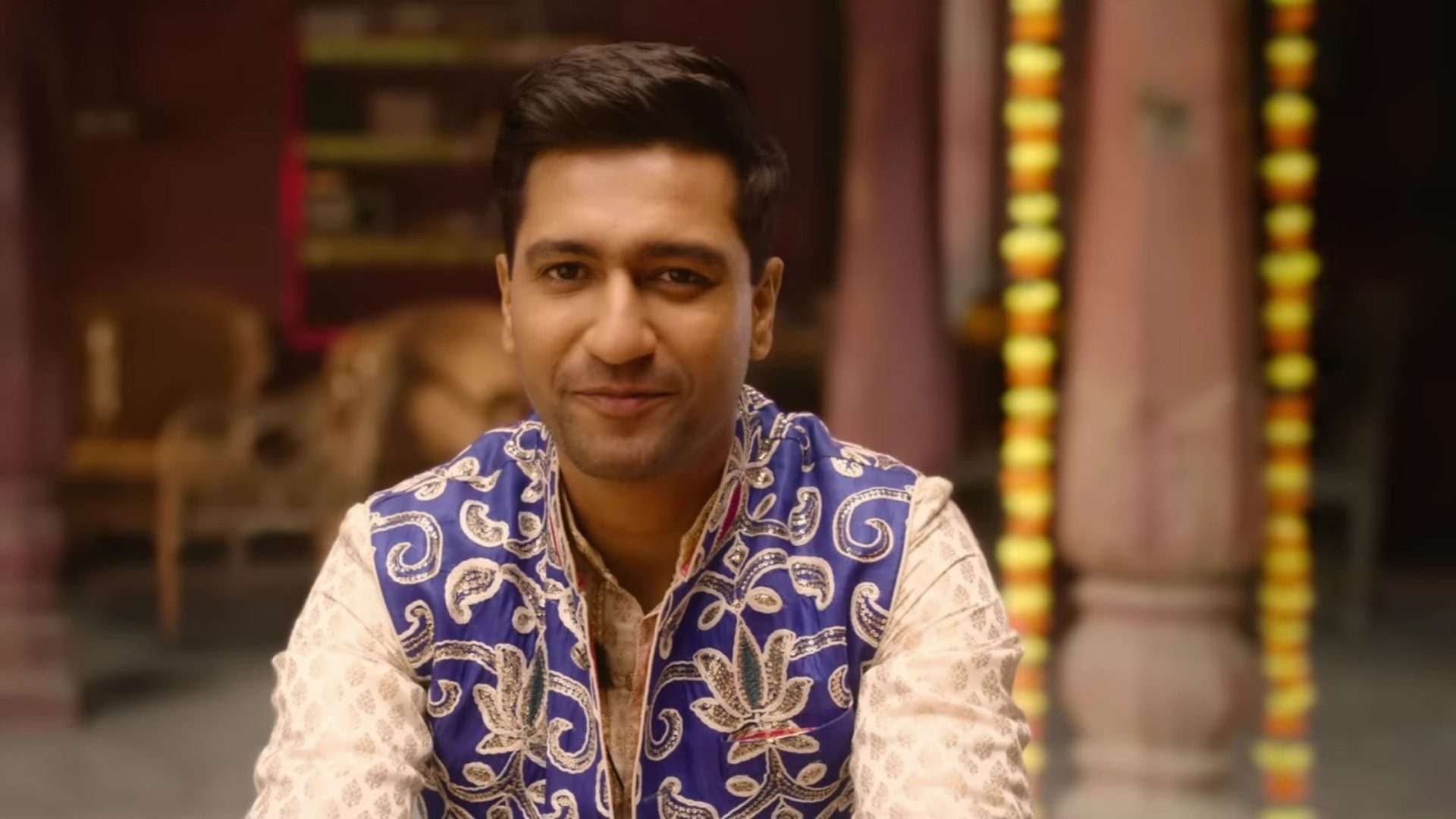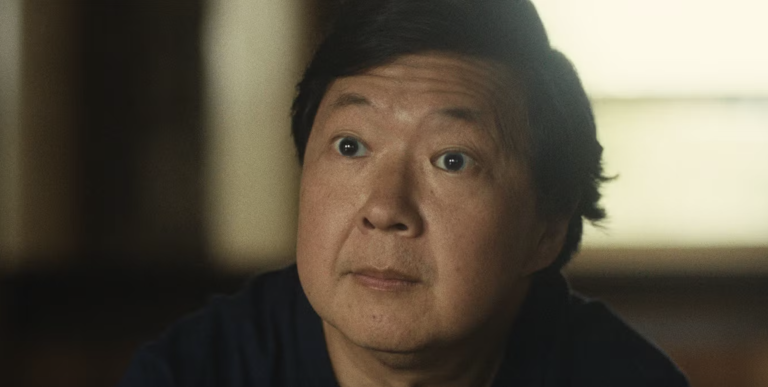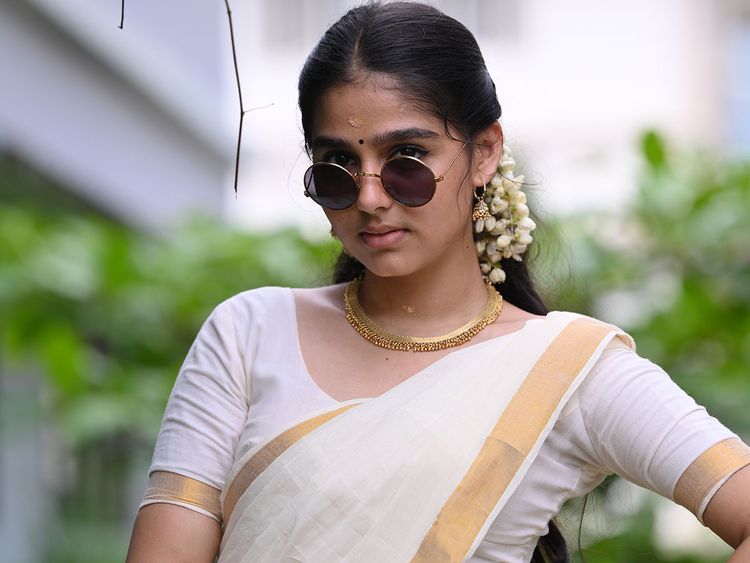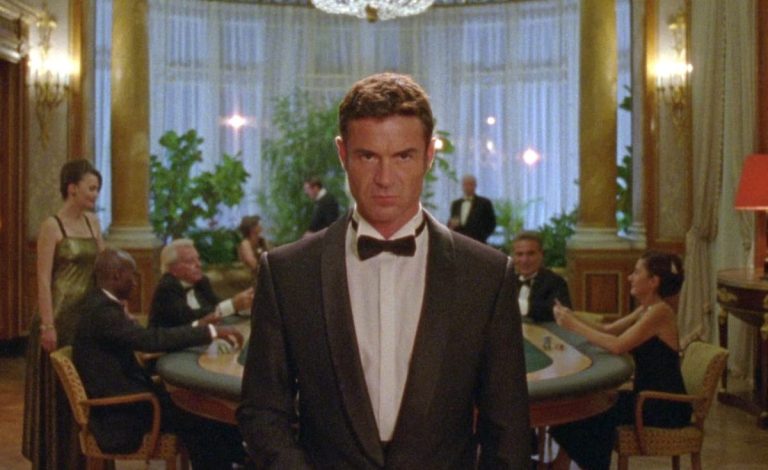Before we talk about YRF’s latest film, it’s important to address how muddled the marketing around it has been. It’s fairly reasonable for a mid-budget YRF film to be confident enough to lure audiences in based on the power of its studio tag and the ensemble cast. After all, 2023 is turning out to be a year where Bollywood has been witnessing a fair resurgence in terms of footfalls compared to the past couple of years. It was only after watching “The Great Indian Family,” however that those curious questions became clearer to me.
The discourse around Karan Johar’s “Rocky Aur Rani Kii Prem Kahaani” and especially Atlee’s “Jawan” has made one thing clear. What was once considered the norm and baseline for social messaging now gets considered as ‘bold’ and risky storytelling. Of course, it’s all stemming from how blinded by hate we’ve become. We fear how our relationship with a film would turn out to be before even entering the darkened auditoriums. You watch a Hindu bathed in Brahminical attire blast slogans saying, “Hindu khatre mein nahi dal sakte (we cannot put Hinduism in danger),” while your lead contemplates changing his religion and think: will that offend anyone? How did it bypass the censors?
“The Great Indian Family,” on the other hand, not only carries an attitude of self-awareness with it but also acts like a reminder for people not to take themselves too seriously. It not only (refreshingly) flips the good Muslim vs. bad Muslim convention but also remains unperturbed by the current discourse. It knows exactly what kind of didacticism audiences need to be reminded of – one that’s not barbed in seriousness but rather in the fabric of what was once considered the norm for social satires. Moreover, the film has echoes of old hits such as Manmohan Desai’s “Dharam Veer” but with the subtext of contemporary India. That’s precisely why it’s one of the better Hindi films to have come out in a while.
Vicky Kaushal plays Pandit Ved Vyas Tripathi, aka Billu, who gets attention from women for his peculiar singing talent. He lives with his Pandit father (Kumud Mishra) and uncle (Manoj Pahwa) and is an ignoramus who thinks Allah-hu-Akbar is a form of greeting. In a conventional introductory childhood sequence accompanied by a voiceover, we see his conditioning in and around the suburban Brahmin household. But things begin to change when Billu bumps into a brash Sikhni (Manushi Chhillar in her limited screen time) in a Muslim neighborhood.

However, it’s only when a letter from his past arrives that Billu’s ignorance gets burdened overnight by the weight of his indifference. In the latter half of the film, the fictional town of Balrampur and the Tripathi household become a stand-in for contemporary India. The approach works, considering how porous the boundaries of pride and religion have become. What happens then, when one day you wake up and find out you actually belong to another religion?
While the lead spends the rest of the movie-going through a crisis of his own as doors literally close on him, the film uses it as an excuse to notch up the satirical angle. A running gag of how the Tripathi family is a ‘democracy’ is reinforced by showing crucial decisions based on emotional sentiments made through a voting box. “Democracy ki shakal bhi badli hui lag rahi thi (The face of democracy also seems to have changed),” observes Billu at one point. Unlike KJo’s new hit, this one doesn’t just try to cheekily update its politics – it adroitly delivers on its satirical aspects by actively updating its grammar.
But no YRF film can be complete without having cathartic family showdowns. The movie taps into an unspoken sentiment through its father-son dynamic that’s relatively unexplored in such a poignant way in mainstream Hindi cinema. Perhaps it stems from Mishra’s warm person (one that the film greatly cloaks under his attire only to reveal at the right moment). Still, a tender scene of him confronting Billu at the gate of a mosque gets elevated because of how supremely it circles back to another moment earlier in the film.
Another shot later frames him through a tainted glass in his moment of moral reckoning. Moments like these actually made me wonder how Vijay Krishna Acharya may be capable of hitting home such intimate poignancy and whether he’s earned a rather infamous reputation because of the weight of the over-ambitious projects in the past.
The star of the film is undoubtedly Vicky Kaushal. He aptly encapsulates the blatant ignorance most young men in today’s India go around with, oblivious to how dangerous it is until the tides turn against them. “The Great Indian Family” doesn’t want you to change your views on anything as much as it wants everyone to empathize with precisely what would happen if the tides were to turn against us. The fact that the very keyword in its title is under scrutiny today signals how it may already have.



![Pokémon the Movie: Secrets of the Jungle [2021] Review: Wish they would Let Ash Grow Up](https://79468c92.delivery.rocketcdn.me/wp-content/uploads/2021/10/Pokemon-the-movie-secrets-of-the-jungle-1-768x432.jpg)
![8 [2019]: ‘Fantasia’ Review – Chilling, Terrifying and Flawed Folk Horror](https://79468c92.delivery.rocketcdn.me/wp-content/uploads/2019/07/8-Fantasia-highonfilms-768x322.jpg)
